They say, “You are what you eat,” and there is a lot of truth to that statement. Our diet directly affects how we feel, function, and fight against health challenges. Thus, it is important to aim for good nutrition. But what if your body was battling a rare and progressive condition like Duchenne Muscular Dystrophy (DMD)?
DMD is a genetic disorder that weakens muscles over time, making everyday movements harder. This happens due to a missing protein called dystrophin, crucial for keeping muscles strong and resilient.
Without dystrophin, muscle fibres break down more easily and struggle to regenerate. This leads to progressive muscle loss and mobility challenges.
While researchers and doctors are working tirelessly to find a cure, there is one thing that can make a significant difference for people with Duchenne Muscular Dystrophy —nutrition.

Table of Contents
Essential Nutrients for Muscle Strength and Health
Protein Diet– The Muscle Builder
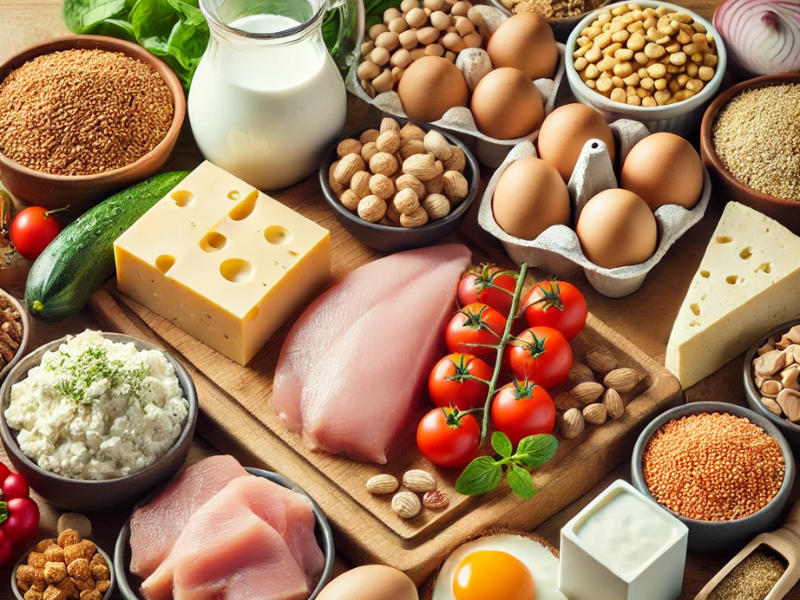
Protein is an essential macronutrient that plays a vital role in muscle repair and maintenance. Since DMD weakens muscle fibres over time, a sufficient intake of protein helps slow down muscle deterioration and supports the body’s repair mechanism.
High-quality protein sources include:
- Lean meats such as chicken and turkey
- Eggs, which provide all essential amino acids
- Dairy products such as yoghurt and paneer
- Plant-based proteins like lentils, chickpeas, tofu, and quinoa
It is important to balance protein intake to avoid excessive strain on the kidneys, especially since some DMD patients may develop complications with kidney muscles affecting function.
Healthy Fats in Food – The Energizer
Fats often have a bad reputation, but the right types of fats are crucial for individuals with DMD. Since muscle weakness can make movement difficult, the body requires a steady and efficient energy source. Healthy fats provide this sustained energy while reducing inflammation, which is particularly beneficial for individuals with neuromuscular disorders.
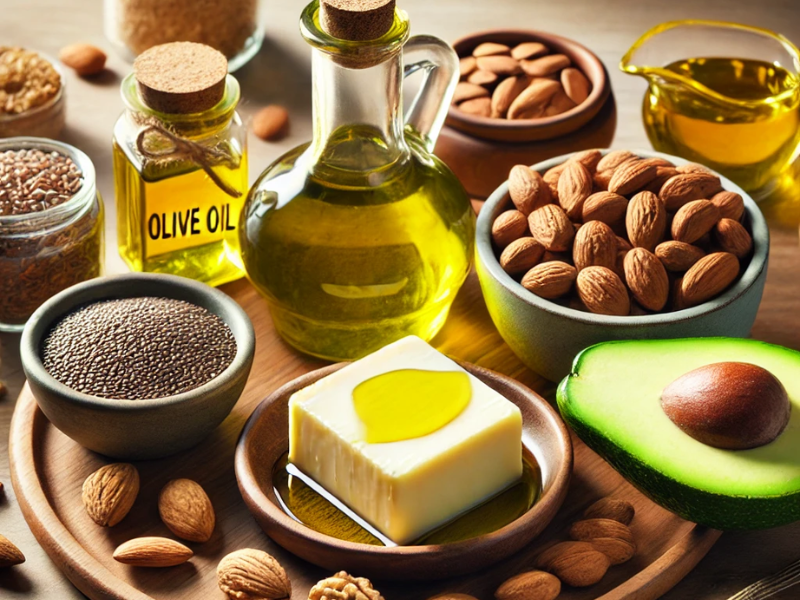
Sources of healthy fats include:
- Ghee, which supports digestion and energy production
- Olive oil, which contains anti-inflammatory properties
- Nuts and seeds, such as almonds, walnuts, flaxseeds, and chia seeds
- Avocados, which provide monounsaturated fats that support cardiovascular health
Avoid trans fats and excessive saturated fats. They can contribute to inflammation and cardiovascular issues.
Nutrients Like Antioxidants and Vitamins – The Bodyguards
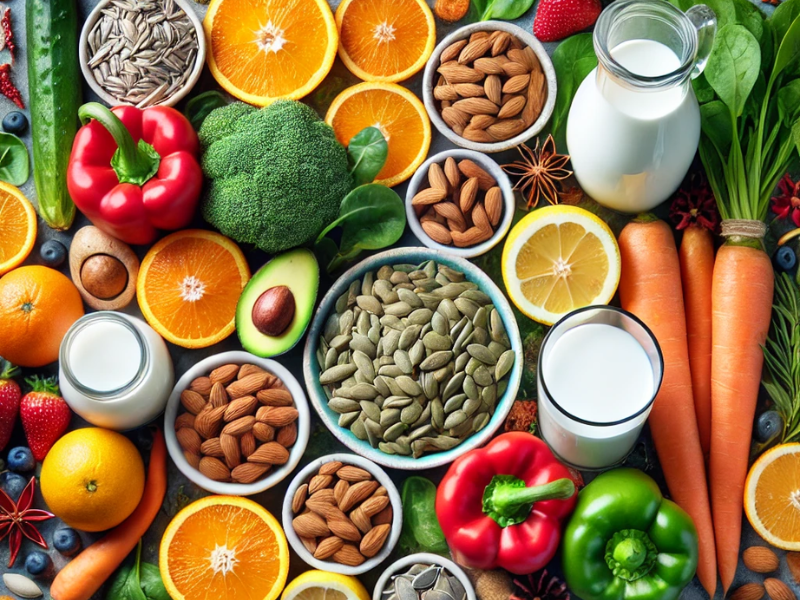
Since muscles are under constant stress in DMD, oxidative damage can accelerate muscle deterioration. Antioxidants and essential vitamins act as protectors, helping to neutralise free radicals and support muscle recovery.
Rich sources of antioxidants are:
- Vitamin C, found in citrus fruits, bell peppers, and tomatoes, aids in iron absorption and boosts immunity.
- Vitamin E, present in almonds, sunflower seeds, and spinach, helps protect muscle cells from oxidative stress.
- Vitamin A, found in carrots and sweet potatoes, promotes muscle recovery and immune function.
- Calcium and Vitamin D, essential for bone strength, are found in dairy products, leafy greens, and fatty fish. Since individuals with DMD are at higher risk for osteoporosis due to reduced mobility, ensuring adequate calcium and vitamin D intake is crucial.
Iron In Food– The Oxygen Carrier
Oxygen is essential for muscle function, and iron plays a critical role in delivering oxygen to muscles through the bloodstream. Without enough iron, individuals may experience fatigue, weakness, and decreased endurance.
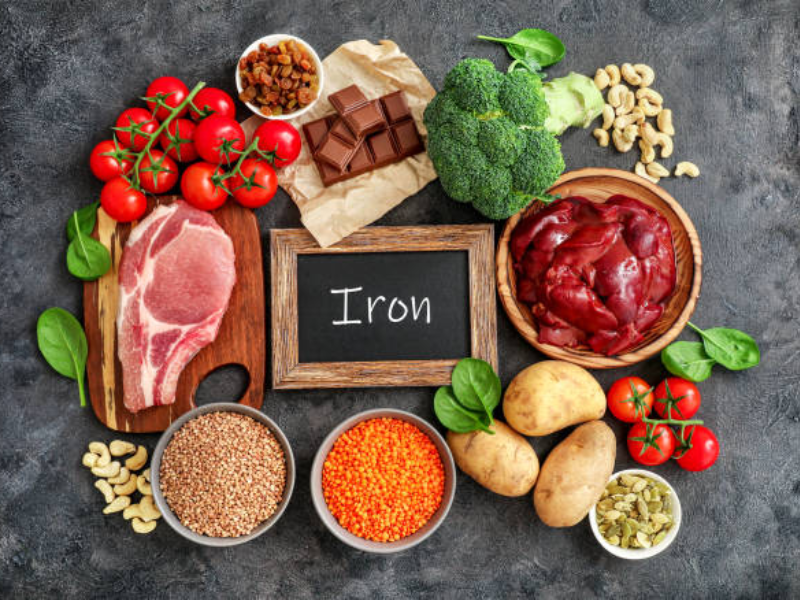
Good sources of iron include:
- Leafy greens like spinach and kale
- Lentils and beans
- Red meat in moderation
- Nuts and seeds
Pairing iron-rich foods with sources of vitamin C enhances absorption, ensuring that the body utilizes iron efficiently.
Fibre in Diet – The Digestive Hero
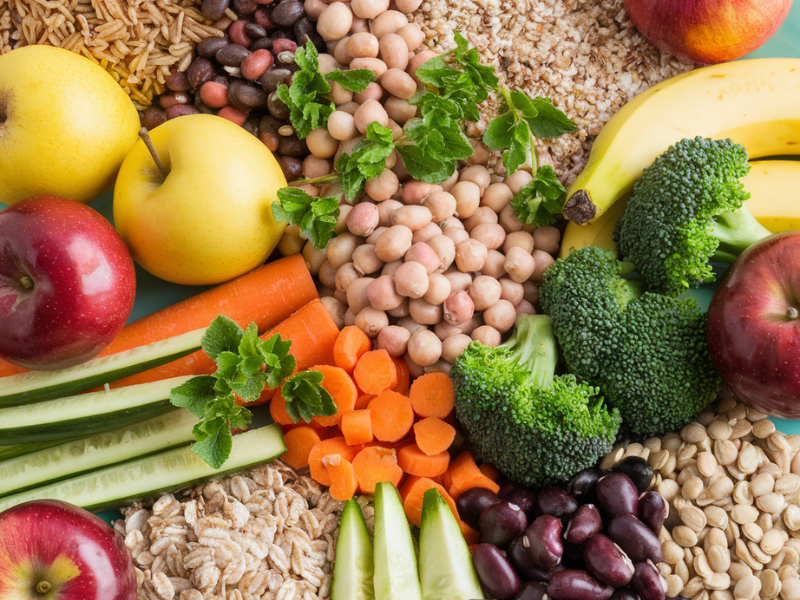
DMD can sometimes lead to digestive challenges, making fibre an essential part of the diet. Fibre supports gut health, improves nutrient absorption, and promotes healthy digestion.
Excellent sources of fibre include:
- Whole grains such as brown rice, quinoa, and oats
- Fruits like apples, pears, and bananas
- Vegetables such as carrots, broccoli, and cucumbers
- Legumes like lentils, beans, and peas
A fibre-rich diet prevents constipation, which can be a common issue for individuals with reduced mobility.
Puree Diet- Texture-Modified Food
Pureed meals, designed to be smooth and easy to swallow, ensure that patients continue to receive the necessary nutrients without the risk of choking or aspiration.
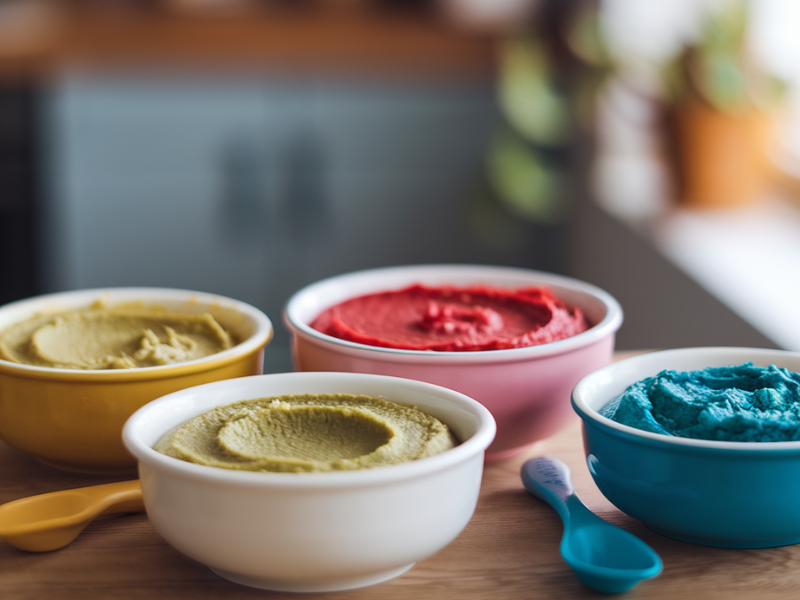
In the final stages of Duchenne Muscular Dystrophy (DMD), patients often experience severe muscle weakness, which affects their ability to chew and swallow food. As the disease progresses, the muscles responsible for these functions weaken, making it difficult or even impossible for the patient to safely consume solid foods.
This is when transitioning to pureed or liquid-based foods becomes essential.
Food can be tailored to provide high-calorie, protein-rich options that support the patient’s weakened body, making it easier for caregivers to meet their dietary needs. Feeding tubes may also become a necessary part of the care plan, helping to ensure that the patient receives sufficient nutrition despite their swallowing difficulties.
A Simple Yet Powerful Recipe: Muscle-Boosting Lentil and Vegetable Soup
Eating a nutritious diet does not have to be complicated. Here is a simple, nutrient-dense soup recipe that is easy to digest and packed with essential vitamins and minerals.
Ingredients and Their Benefits
- ½ cup yellow moong dal (split yellow lentils) – High in protein, easy to digest
- 1 small carrot (chopped) – Rich in vitamin A for muscle recovery
- ½ cup spinach (chopped) – Provides iron and calcium
- 1 small tomato (chopped) – Boosts vitamin C for iron absorption
- ½ teaspoon turmeric powder – Contains anti-inflammatory properties
- ½ teaspoon cumin seeds – Aids digestion
- 1 teaspoon ghee – Provides healthy fats for sustained energy
- 4 cups water or vegetable broth – Keeps the body hydrated
- Salt to taste – Helps maintain electrolyte balance
- 1 teaspoon lemon juice – Enhances iron absorption
Let’s not wait to cook:
Step 1: Rinse and soak the lentils for 15–20 minutes to improve digestion.
Step 2: Heat ghee in a pot, add cumin seeds and let them splutter.
Step 3: Add carrots, spinach, and tomatoes, then sauté for a few minutes.
Step 4: Add lentils, turmeric, salt, and water. Let it simmer for 15–20 minutes.
Step 5: Blend thoroughly because a smooth texture makes swallowing easy.
Step 6: Finish with a dash of lemon juice for extra nutrition. Serve warm.
This soup is an excellent option for individuals with DMD. It is rich in protein, anti-inflammatory, and easy to digest. You can have it as a traditional Indian dal or as a soup.
DMD and Diet: Foods That Shouldn’t Make the Cut!
If you or someone you love is living with Duchenne Muscular Dystrophy (DMD), you already know that managing it is like playing a long game of chess. Every move matters and that includes what’s on your plate! While no magic food can cure DMD, avoiding certain troublemakers can help keep things running smoothly.
Fast Food: The Sneaky Villain
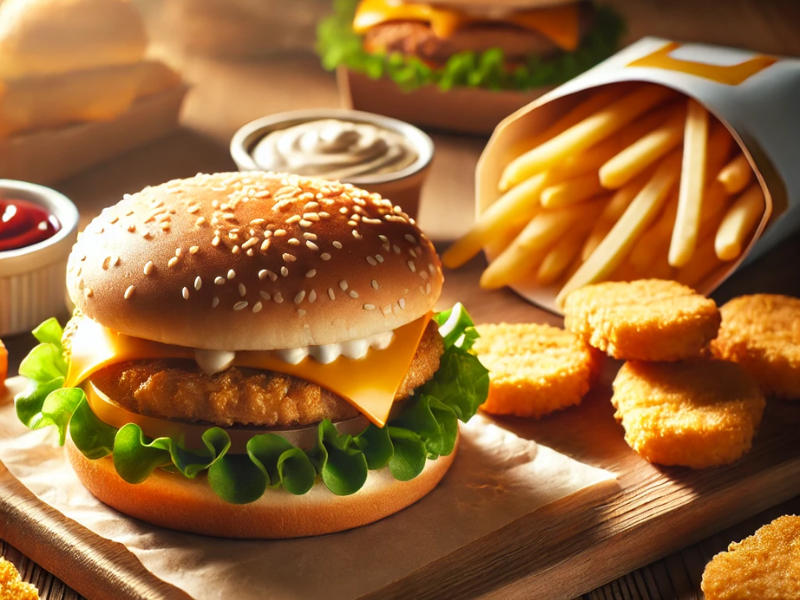
Imagine your body is like a wonder car like a Ferrari. You wouldn’t put anything else but high-grade fuel in your Ferrari, right? The same goes for food.
Fast food—burgers, fries, nuggets—might be delicious, but they’re loaded with unhealthy fats and sodium. These can cause weight gain (a big problem when mobility is already limited) and put unnecessary pressure on the heart. Plus, all those artificial additives?
Your muscles don’t need that junk.
Sugary Diet: The Sweet Backstabber
Sugar is like that friend who’s fun at parties but disappears when it’s time to clean up.
Sodas, candies, pastries, and sugary cereals might give a quick energy rush, but they also bring a nasty crash, leaving you feeling sluggish. And let’s not forget—they add extra pounds, which is the last thing you need when muscle strength is already a challenge. A bite of chocolate now and then? Fine.
But making sugar a regular guest at your meals? That’s a hard no.

Red Meat Meals: The Heavyweight Fighter

Bacon, sausages, hot dogs, and steaks might be crowd favourites, but they come with a lot of baggage—saturated fat, cholesterol, adding extra work for the heart.
Since DMD can already put stress on the heart, it’s best not to give it extra problems. Think of red meat as that one friend who’s fun in small doses but overwhelming if they stick around too long.
Instead, lean proteins like fish, chicken, tofu, and lentils are way better guests for your dinner table.
Salty Snacks: The Silent Saboteurs
Ever noticed how after eating a pack of chips, you suddenly feel bloated like a balloon?
That’s sodium playing its tricks. Processed foods, canned soups, and packaged snacks have way too much salt, which can cause water retention and increase blood pressure. And when your body already has enough to deal with, high blood pressure is the last thing it needs. Instead of munching on store-bought chips, how about some homemade popcorn with a sprinkle of herbs?

Dairy Overload Eats: The Heavy Hitter

Dairy is tricky. It’s good for bones, sure, but too much full-fat milk, cheese, and butter can lead to unwanted weight gain.
And let’s be honest—if your stomach has ever thrown a tantrum after a cheesy pizza, it might be lactose intolerance making an appearance.
For some, swapping heavy dairy for yoghurt, or leafy greens is a smoother ride.
Gluten Food: The Mystery Ingredient
Now, gluten isn’t automatically the enemy for everyone, but for some people with DMD, it can cause inflammation.
If you’ve ever felt extra sluggish after eating bread or pasta, your body might be hinting that gluten isn’t its best friend. A trial-and-error approach works best here—if cutting out gluten helps, great!
If not, then pass the garlic bread.

Fizzy Drinks & Caffeine: The Party Crashers

Soda, energy drinks, and too much coffee might give a short-lived buzz, but they also steal calcium from bones and cause dehydration.
Think of them like that friend who hypes you up but ditches you when you need real support.
Since DMD already makes bones fragile, it’s better to hydrate with water, fruit juices, or herbal teas.
Role Of Hydration and Lifestyle: DMD Diet
Nutrition alone is not enough. Proper hydration and lifestyle habits play a significant role in supporting muscle function and overall well-being.

- Drinking plenty of water helps prevent muscle cramps and flushes out toxins.
- Herbal teas, such as chamomile or ginger tea, can help reduce inflammation.
- Engaging in gentle exercises and physiotherapy can help maintain mobility and prevent excessive muscle stiffness.
We are not saying that food will cure DMD, but the world relies on hope. We can at least give our bodies the best possible start with wise nourishing.
Think of your body as a high-performance engine—it needs the right fuel to run smoothly. Duchenne Muscular Dystrophy may create obstacles, but the right nutrition can help keep the journey as steady as possible. Every bite you take is a chance to strengthen your muscles, fight fatigue, and stay in the best shape you can.
So, ditch the junk, load up on the good stuff, and let your meals do some heavy lifting. When it comes to battling DMD, food isn’t just fuel—it’s your secret weapon. Eat smart, stay strong, and keep moving forward.
And remember, the right food might be on the expensive side in terms of effort and money. But when treatment of DMD becomes a challenge, consider crowdfunding on ImpactGuru.com. We are committed to giving DMD patients and their families the avenue to beat this terrible medical condition!
Sources:
Nutritional Challenges in Duchenne Muscular Dystrophy
A Formulated Diet-Chart for Patients with Muscular Dystrophy and Its Clinical Significance












